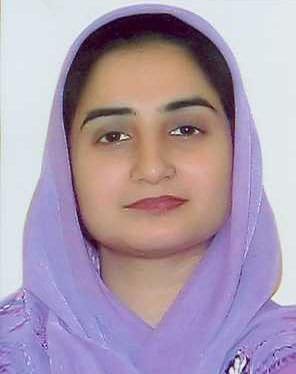Islamabad, 2 Feb 2024 (TDI): Prof. Dr. Samar Yousaf, a distinguished Organic Chemistry Professor at the University of Karachi, has been appointed to The World Academy of Sciences (TWAS) Young Affiliation Network Executive Committee member solidifying her position as a leading figure in global science.
Recognized for her pioneering work in structural and bioorganic chemistry, Prof. Dr. Samar Yousaf has published over 200 research papers with 3000 citations on Google Scholar.
A notable achievement includes her discovery of anti-leishmanial constituents from the local medicinal plant Physalis minima, patented in the USA and set for clinical trials under a Sindh Government-funded project.
Moreover, her appointment follows prestigious awards, including the TWAS Regional Prize for Young Scientist. Prof. Dr. Samar Yousaf is also an elected TWAS Young Affiliate and serves as Editor for the book series “Science of Spices and Herbs,” focusing on crucial studies.
Additionally, this executive committee role underscores Prof. Dr. Samar Yousaf’s dedication to advancing scientific knowledge globally.
The World Academy of Sciences
Globally recognized for its commitment to fostering sustainable prosperity through initiatives in research, education, policy, and diplomacy, The World Academy of Sciences (TWAS) actively advances science in developing nations. Headquartered in Trieste, Italy, the Academy plays a pivotal role in promoting scientific development across the world.
Also Read: Newly designated ambassadors to Pakistan presents credentials
The World Academy of Sciences (TWAS) is a renowned international scientific organization that focuses on promoting scientific excellence and capacity-building in developing countries.
Established in 1983, TWAS operates under the umbrella of the United Nations Educational, Scientific and Cultural Organization (UNESCO). The primary objective of TWAS is to advance scientific research, education, and policymaking in order to contribute to sustainable development.
Moreover, TWAS provides fellowships to scientists from developing countries, enabling them to pursue advanced research and studies in various scientific fields. These fellowships aim to bridge the gap between developed and developing countries in terms of scientific expertise.
Established in December 2008, The Diplomatic Insight is Pakistan’s premier diplomacy and foreign affairs magazine, available in both digital and print formats.



